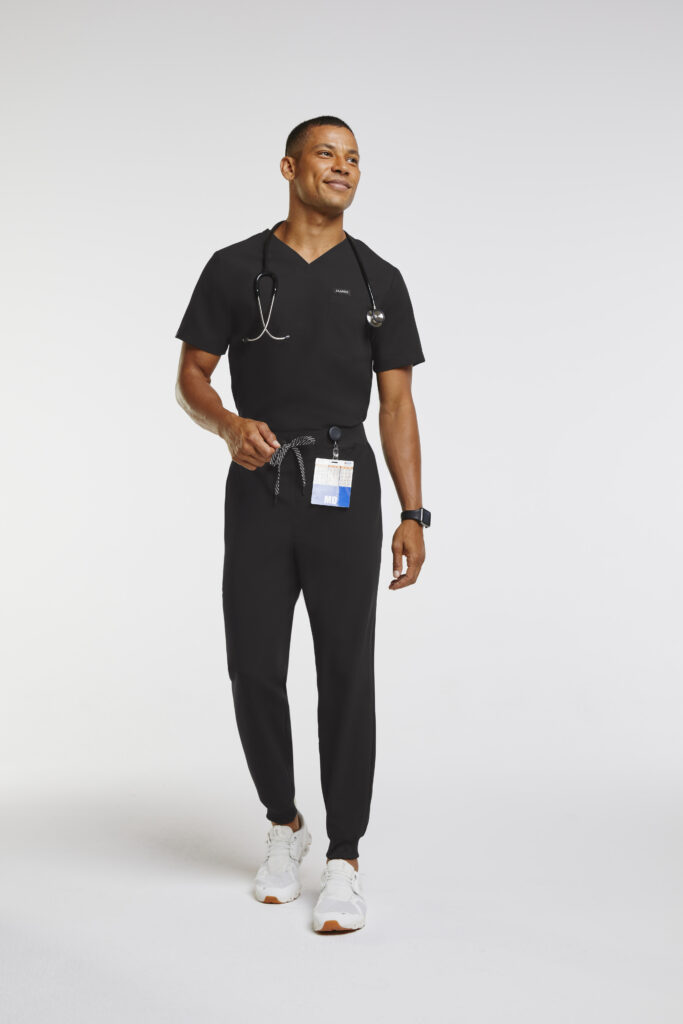Healthcare isn’t just a professional field; it’s a passion. If you’re excited about medicine, want to make a difference, and improve patient outcomes, there’s a role for you in this industry. The healthcare ecosystem has a place to fit individuals with varied academic backgrounds and experiences. You don’t have to train as a doctor or nurse or provide clinical care to participate. Even if your background is in accounting or office management, you can support the industry with your skill set.
If you’re in medical school wondering “What healthcare career is right for me,” we’ll help you find out. Read on to learn some of the perks of working in this industry, what to consider before you start and some health career pathways that may not immediately come to mind.
Academic background
One of the first things to consider before exploring different healthcare careers is the level of education each requires. Sometimes, you don’t even need to attend medical school, but many roles require a college-level degree. You may even be able to use a degree you already have to enter into a specialized role in the medical field as long as you earn a certification. Following are some prerequisite credentials with their corresponding job opportunities:
- High-school diploma: Home health aide, pharmacy technician, psychiatric aide, and phlebotomist
- Associate’s degree: Registered nurse, dental hygienist, emergency medical technician (EMT), licensed practical nurse, medical assistant, medical records specialist, medical transcriptionist, certified nursing assistant, psychiatric technician, occupational or physical therapy assistant, MRI technician, accountant, and sonographer
- Bachelor’s degree: Registered nurse, dietitian or nutritionist, accountant, hospital department manager, nursing home administrator, medical office business manager, insurance company analyst, government policy maker, government lobbyist, and facility operations specialist
- Master’s degree: Mental health counselor, nurse anesthetist, nurse midwife, nurse practitioner, occupational therapist, physician assistant, speech-language pathologist, medical records supervisor, and healthcare consultant
- Doctoral degree: Doctor, nurse educator (university level), dentist, physical therapist, hospital CEO, hospital CFO, government agency healthcare administrator, and professor of healthcare administration
Perfect your skill set

Once you earn the required degrees for a job, you’ll need to hone specific skills. If you feel drawn to a career in healthcare, some of these skills, like compassion, are probably innate to you. The hard skills—the facts and abilities you’ll learn in books or clinical practice—depend on your role. But every healthcare professional needs certain soft skills—whether a community advocate or a brain surgeon.
- Organization
- Confidence
- Strong communication skills
- Excellent critical thinking skills
- Teamwork
- Professionalism
- Compassion/empathy
- Flexibility/ability to think on your feet
- Time management
Our top 10 reasons to pursue a health career
So you’ve filled your proverbial tool kit with the right hard and soft skills, and you’re ready to start work. Now you have the following 10 perks that answer why pursue a health career:
- Job stability: This is one of the top reasons. Healthcare career options are on the rise and will continue to maintain an upward trajectory. Patients will always need care, which means they’ll also always need healthcare workers and the systems that support them.
- Live and work anywhere: All cities and towns have healthcare facilities of some sort, which gives you the flexibility and opportunity to work wherever you wish to. In fact, with skyrocketing growth in telemedicine, especially during and after the pandemic, there are now many remote healthcare jobs, including for clinical professionals, so you can even work from home.
- Learn by doing: Many healthcare careers are hands-on. This means you learn as new situations arise at work. And healthcare degree programs are no different. Clinical rotations are an essential part of both nursing and medical school.
- Earn a good salary: Healthcare salaries tend to be high. Some advanced practice nurse practitioners, for example, earn in the $200,000 range (without having to attend medical school). The job career outlook is also good, with an aging population in need of care and new jobs cropping up every day.
- Work with people: Healthcare professionals often work in a team. Even doctors and nurses don’t go it alone. Instead, they work together to create and implement patient care plans. But, if you’re more of an introvert and think you’ll thrive in an individual contributor role, you can always find lab work or research roles.
- Work is exciting: Healthcare environments, especially clinical ones like hospitals and private practices, are fast-paced and ever-changing, with a constant flow of new patients and cases coming in.
- Opportunity to make a difference: Punching numbers behind the scenes as an accountant for a private practice makes a huge difference in people’s lives. You may not be involved in direct patient care, but your back-end support is equally valuable. Administrative roles are the backbone of the healthcare system and allow clinical professionals to provide efficient care.
- A healthcare career for every student: Our lists above show the wealth of jobs you can pursue with any degree. This should be evidence enough that you can join the healthcare industry even if you don’t want to spend, say, eight years earning a graduate degree.
- Move up the ladder: Many healthcare providers support their employees with clear routes for advancement, access to professional development tools, and even educational reimbursements.
- Choose your schedule: Healthcare schedules, especially clinical ones, come in all shapes and sizes. There are overnight shifts, classic nine-to-five, and part-time roles. The secret to getting a position that fits your life is to research what the schedule for a role looks like before jumping in.
What do I need to consider in a health career?

The simple answer to this question is work-life balance. Before you apply to school or hit the job boards, consider the demand for healthcare roles. Jobs in the sector can be physically and emotionally challenging. Clinical professionals often work long and irregular hours, which can ultimately make them feel overwhelmed and at risk of burnout. And, if you’re in any kind of patient-facing role, you’re sure to have delicate conversations and difficult moments with patients.
Healthcare professionals must look out for themselves, and while self-care helps, it’s not always enough. Work with a therapist, join a support group and discuss your needs with partners, family members, and anyone else in your support system. Don’t be shy about taking help. Remember, put yourself first whenever you can. You can’t pour from an empty cup, so stay “full” by eating well, hydrating correctly, and finding a good balance of activity and rest.
Whether your goal is to become a specialized nurse at the doctor’s office or a hospital finance manager, you can certainly wear scrubs and be comfortable and trendy. But, if business casual is your thing, check out our line of outerwear for women and men or loungewear for every kind of medical professional.

